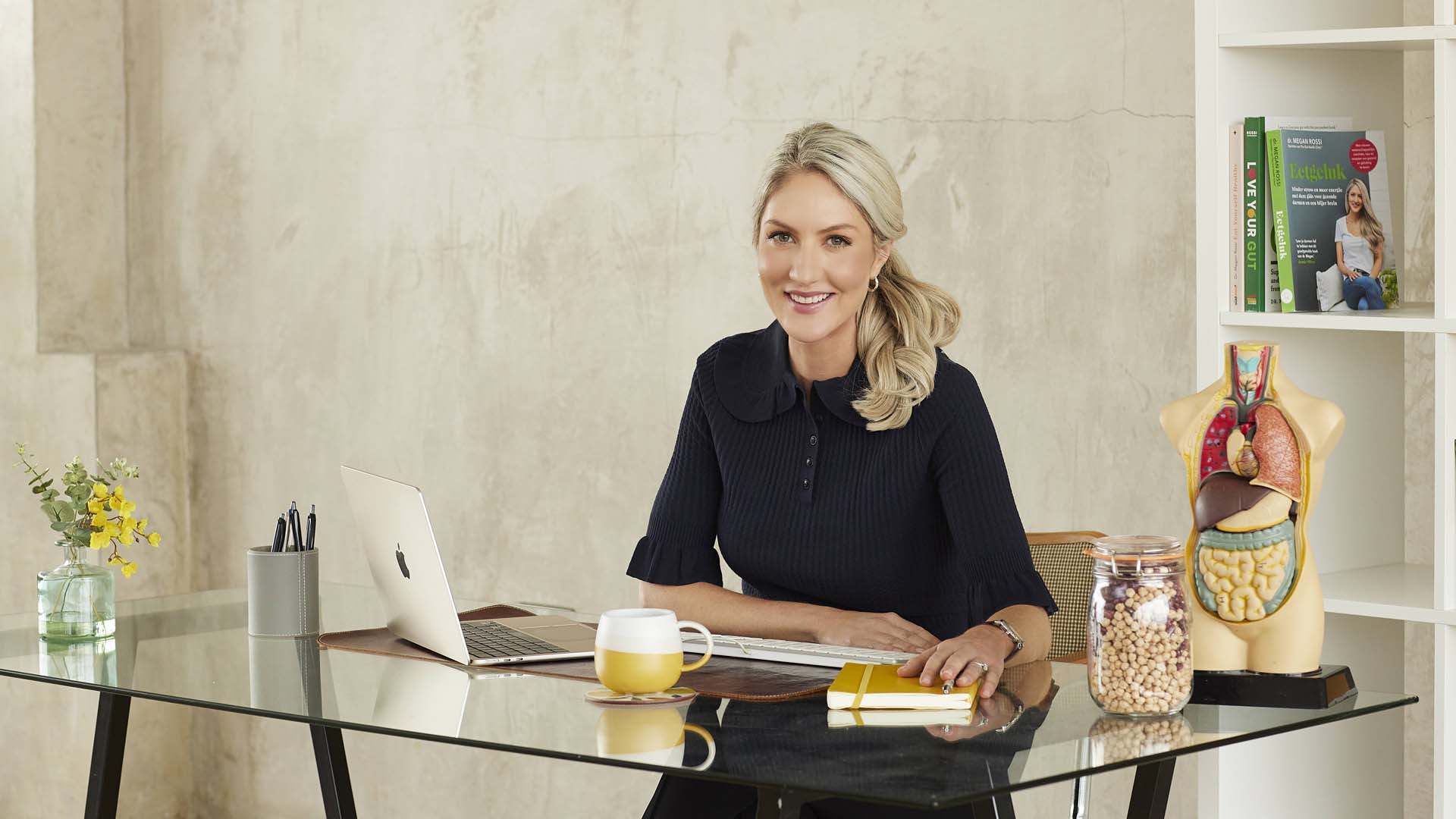Treat your gut like your pet to stay healthy - Dr Megan Rossi
The Gut Health Doctor shares 7 ways to improve your gut and your health.

The Gut Health Doctor shares 7 ways to improve your gut and your health.

The 'Gut Health Doctor' Megan Rossi is an award-winning scientist, at King's College London, who has published more than 50 scientific papers in international, peer-reviewed journals, and is the best-selling author of gut health books.
Saga Magazine spoke to the expert who says she realised how important our gut health is, when working in a hospital early in her career.
“I observed how those from elite athletes to quite sick people were all complaining of the gut in a lot of the issues that they were struggling with," she said. "That led me to do my PhD in gut health.”
She says that many people are fearful and confused about the gut, but that knowledge is key.
“I don't want to be the person that says, you have to do this [specific thing]. I want people to be informed so then they feel empowered to make their own decision.
“If you learn to look after your gut and understand the scientific principles, then you can take control of your health.”
She says that “the gut affects far beyond digestive symptoms.
"Keeping it healthy and happy has been linked to a lower risk of conditions such as certain cancers, type 2 diabetes and heart disease.
"It also contributes to protecting your mental health and optimising your metabolism, energy, immunity and much more.”

Rossi is keen to share her knowledge with others. She has a unique gut health tip: “Treat your gut bacteria like a pet.
“You want to look after your pet well so it lives its best and most active life possible. The same applies to your gut; you want to feed it everything that it needs to perform at its best.
“Giving ‘your pet’ different types of plant foods will allow it to flourish, meaning you can live a healthier and happier life.”
The gut expert has seven simple tips to help look after your gut health.
She says each category of plants provides bacteria with different nutrients, which nourish them and can support hormonal regulation.
“Getting more of these plants in can help strengthen bone health as well,” Rossi adds.
“Tea is a really good source of polyphenols (natural antioxidant compounds found in plants) which feed the good [gut] bacteria,” she said.
However, she warns against having too much caffeine. If you want to drink tea throughout the day, she suggests switching to decaf or herbal teas after lunchtime to avoid interfering with your sleep.
“Fibre is an amazingly powerful nutrient. It feeds our gut bacteria, which is so important for not just our digestive health, but the health of just about every other organ in our body.
For maximum health benefits, opt for meals and snacks that pair fibre with either a protein or a healthy fat. This has the added benefit of supporting your blood sugar balance while also keeping your appetite hormones in check, keeping you more satisfied for longer.”
Tested by Rossi and her team at her Gut Health Clinic, eating at least 30 different plant-based foods a week has been proven to result in greater diversity of gut microbes than if you eat fewer, even if you eat more plants in total.
More diverse gut bacteria is linked to better gut health.

70% of the body’s immune cells live within our gut. “And vitamins A, C, D, and E, as well as selenium and zinc, have a role in supporting the immune system,” says Rossi.
“If you’re getting a good range of plants within your diet (aiming for the 30 per week will help) you’ll be getting a good amount of these nutrients and you don’t need to spend money on supplements.” Foods filled with key nutrients and phytochemicals that Rossi says will help boost your gut health and your immune system include:
“If it is becoming more challenging to include a good range of tough, fibrous plant-based products as you age, consider ground or milled versions of nuts and seeds, or additional veg and fruits in smoothies and juices.”
Rossi says: “This will help maintain a good community of bugs within your lower gut.”
Other research from Rossi has focussed on gut and bone health, and how an altered gut microbiome is linked to a lower bone mineral density in people with osteopenia (weakened bones) and osteoporosis (bones which are more severely weakened, meaning they may break).

“Nutrition is really powerful for people’s health,” she says.
“If people can't nourish their bodies properly, they will have more sick days; they will have poorer mental health; they’re not going to live as long. It’s so unfair to put people in those positions.”
Rossi says the cost-of-living crisis has made access to good nutrition even more difficult and many patients are struggling to feed themselves and their families.
“This highlights nutrition quality will be even poorer, because people don't necessarily have access at food banks to fresh foods.”
Rossi is the author of Eat Yourself Healthy and The Sunday Times bestseller Eat More Live Well she leads The Gut Health Clinic and the co-founder of gut health food brand Bio&Me.
Gemma Harris has been a journalist for more than seven years and is a self-confessed health and wellbeing enthusiast, which led her to specialise in health journalism. During her career, she has worked with top editors and publications in the industry.

Are you retiring at the wrong age? The best age to retire for your body, brain, happiness and pocket.


Everything you need to know about the lung infection, and how you could be ill with “walking” pneumonia without realising it.

Strong calves for a strong mind: how they support our circulation and brain health, with easy moves to strengthen yours at home.


Our GP Dr Mark Porter explains what can cause itchy skin, which is a common problem as we get older.

Worried you’ve morphed into Victor Meldrew? Find out how to battle that bad mood, and what to do if you’re stuck with a grouchy loved one.

The benefits of heat and cold therapy, and how Nordic bathing won over our nervous writer.

Here’s how to spot the symptoms of heat disease and reduce your danger.


The NHS winter vaccination campaign kicks off next week. Here’s the lowdown on what you need to book.

Pilates for back pain – what to do if you are suffering, and five gentle exercises that could help.

Dizziness or vertigo: a sensation of spinning, can stop us doing everyday things for fear of falling. Try these tips to stop feeling dizzy


You don’t have to put up with bladder leaks. We try out the latest pelvic floor gadgets for men and women.

Cataracts are a normal part of ageing. Learn how to spot the signs – and when it’s time to consider surgery.